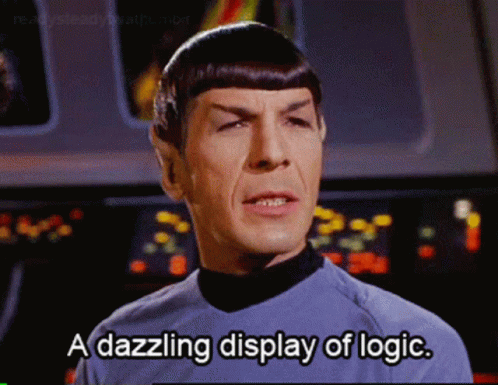Ned Block, for example, imagines an entity that talks (or generalizing, behaves outwardly in many respects) just like a human being, but which is composed basically of a giant if-then lookup table (a "Blockhead"). He also imagines instantiating the high-level functional architecture of a human (described by a Turing table) by having the residents of China coordinate to instantiate that structure (the "Chinese nation" thought experiment). Such entities, Block suggests, are unlikely to be conscious. If we were to create an android like Data from Star Trek, the entity might behave superficially much like us but lack consciousness in virtue of being built very differently inside.
John Searle similarly imagines a "Chinese room" consisting of him reading from a rule book and seeming to converse in Chinese, without any of the relevant conscious thoughts, or an assembly of beer cans and wire, powered by windmills, that acts and reacts outwardly just like a human being (though at a slower pace). Surely, Searle suggests, no arrangement of beer cans, wire, and windmills, no matter how sophisticated, could give rise to consciousness. That's just not the right kind of stuff. Neurons, he says, have the causal power to generate consciousness, but not everything does. Neurons are, in that respect, at least somewhat special. Computer chips, despite their massive computational power, might not have that special something.
It doesn't follow from Block's or Searle's arguments that neurons are special in virtue of specific biological features like RNA and calcium ions. Neither Block nor Searle commits to such a view, nor am I aware of any influential theorist of consciousness who does. But the possibility at least becomes salient. It becomes desirable to have an argument that whatever it is about the brain that makes it special enough to generate consciousness, it's not such low level biological details.
It can help to conceptualize the issue in terms of space aliens. If we were to discover space aliens that behaved outwardly in highly sophisticated ways -- perhaps like us living in complex societies, with complex technology and communications -- and it turned out that their underlying architecture were different from ours with respect to such biological details, would we be forced to be agnostic about their consciousness? Would we have to say, "Hold on! No neurons? Maybe they don't have the right stuff for consciousness! They might be mere zombies, no more conscious than stones or toasters, for all their complex behavior." Or would it be reasonable to assume that they are conscious, despite the architectural differences, barring evidence that their seeming complexity is all some elaborate ruse?
If we had the right theory of the architecture of consciousness, now would be the perfect time to deploy it. Ah, the aliens fortunately have (or sadly lack) a global workspace, or high information integration, or higher-order representations of the right sort, or whatever! But as I've argued, there's reason to be skeptical about all such theories.
Here's where an application of the cosmological principle of Copernican mediocrity can help. According to Copernican principles in cosmology, we are licensed to assume (pending counterevidence) that we don't occupy any particularly special region of the cosmos, such as its exact center. The Copernican principle of consciousness holds that we are similarly licensed to assume (pending counterevidence) that we aren't particularly special with respect to consciousness. Among behaviorally sophisticated alien species of diverse biological form, we aren't luckily blessed with consciousness-instilling Earthiform neurons while every other species is experientially dark inside. That would make us too special -- surprisingly special, in much the same way that it would be suspiciously, surprisingly special if we happened to be in the exact center of the cosmos.
In other words, the following Copernican Principle of Consciousness seems plausible:
Among whatever behaviorally sophisticated (approximately human level) species have evolved in the observable universe, we are not specially privileged with respect to consciousness.
That is, we are not among a small minority that are conscious, while the rest are not. Nor do we have especially more consciousness than all the rest, nor especially good consciousness.
If we assume (as seems plausible, but which could be contested) that across the trillion galaxies of the observable universe, behaviorally sophisticated life has independently evolved at least a thousand times, and that in only a small minority of those cases do the entities have neurons that are structurally like ours at a fine level of anatomical detail (e.g., having RNA and calcium channels), then it follows that consciousness does not depend upon having neurons structurally like ours at that fine level of anatomical detail.
Eric Schwitzgebel - http://schwitzsplinters.blogspot.com/2024/04/neurons-arent-special-copernican.html

